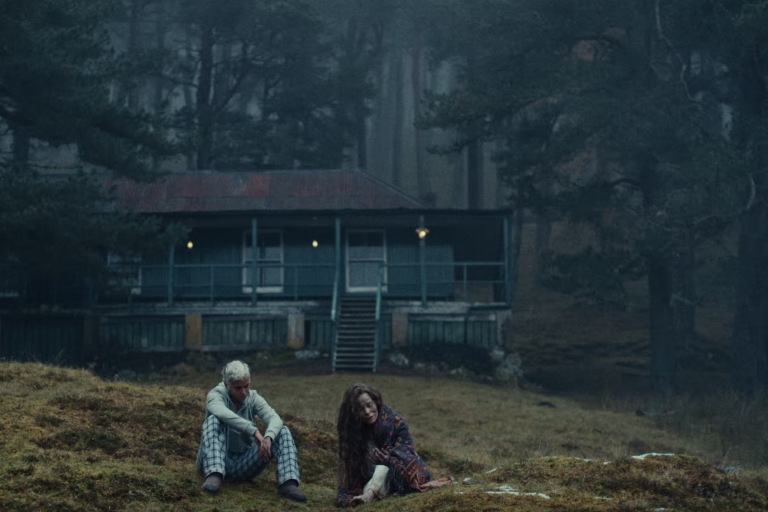Bird, Margarethe 89 (2024) ‘Vienna Shorts’ Reviews: Ana Cristina Barragan’s Bird is a gleaming example of infinitely smart filmmaking. Very quickly into the film, you become sharply aware of Barragan as a director completely familiar with the intricacies of the ground she is traversing. It is emotionally raw and thorny terrain, and the short film expertly condenses the fraught mental landscapes of the group of women at its center. They have gone through harrowing times, which Barragan slowly reveals to measured, devastating effect. They barely speak about what they have endured except the manipulation that led to abuse. The emotional hurt still itches while the marks of exploitation and violence on their bodies graze into full view.
The setting is a remote shelter tucked away behind a forest. It is a group that has retreated into a tight unit enclosed unto itself. Interactions with outsiders are never mentioned. For the healing to be affected, the girls and the women fall back on one another. The horror of their shared experiences is their connective thread as well as a language only they are well-versed in to untangle and grow out of it. There’s confusion, resentment, and anger but also shards of protectiveness and reassurance rending the atmosphere of the shelter. The emphasis here is not so much on one person’s story but on the collective.
Each individual’s experience is mapped onto the other. Their memories are forged together and bound into a large symbiotic whole. The film has no plot to speak of, choosing instead to take us inside the rhythms of their routine. It is very much a communal bubble that Bird foregrounds as it moves through them, having everything together, from lunch to bathing. This inseparableness is posited as the conduit through which the loneliness of their innermost feelings gets allayed to some degree.

Oppression also brutally shadows the lives of the people in Margarethe 89, an animated short by Lucas Malbrun. Set in Leipzig in 1989, it depicts a period of intense, heightened turmoil. The secret police of East Germany, the Stasi, exerts a formidable grip. It looms large, its scrutiny boring into the slightest crevice of dissent that may prop up. There’s no running away from it. Escape from its tentacles is nigh impossible once one has been marked out for opposing the regime. The titular character gets mired in its hold. She finds herself detained in a psychiatric hospital. She dreams of freeing herself and making a life with her lover, Heinrich.
But dreams have little currency once the regime has its stranglehold on the individual. Margarethe is a wild, untethered soul who doesn’t initially get bogged down by the consequences of her actions. However, quickly, she confronts how puny her attempts at liberating herself are. The divide between her detained life, which she temporarily breaks out, and the outside world thickens irrevocably. Crashing out of the boundary is realized as a pipe dream. It is a hopeless, grim vision that Margarethe 89 highlights. Any pocket of reprieve is short-lived, followed in quick succession by panic and terror.
Uncertainty and precarity fill the world the film renders in a mix of edginess and despair. Situations spiked with high stakes populate the film, and so does a creeping dark discovery of one’s deep vulnerability. Tragedy is imminent and constant, almost inextricably wound up with the life of the protagonist, who seems permanently doomed. The spot of romance she grabs is fleeting. Lurching to a melancholic close, Margarethe 89 is a bracing portrait of abandonment and claustrophobic finality.
Bird and Margarethe 89 screened at the Vienna Shorts Film Festival 2024.



![Munich – The Edge of War [2022] ‘Netflix’ Review: Yet another plea to Oppose Fascism before its too Late](https://79468c92.delivery.rocketcdn.me/wp-content/uploads/2022/01/Munich-The-Edge-of-War-2022-768x432.jpeg)

![Seeding Change [2021] Review – An inspiring and sustainable way of doing business](https://79468c92.delivery.rocketcdn.me/wp-content/uploads/2021/10/Seeding-Change-1-768x431.png)
![Mallesham [2019] Review: A Heartwarming and Inspiring Biopic](https://79468c92.delivery.rocketcdn.me/wp-content/uploads/2019/05/Mallesham-Priyadarshi-2019-768x291.jpg)

